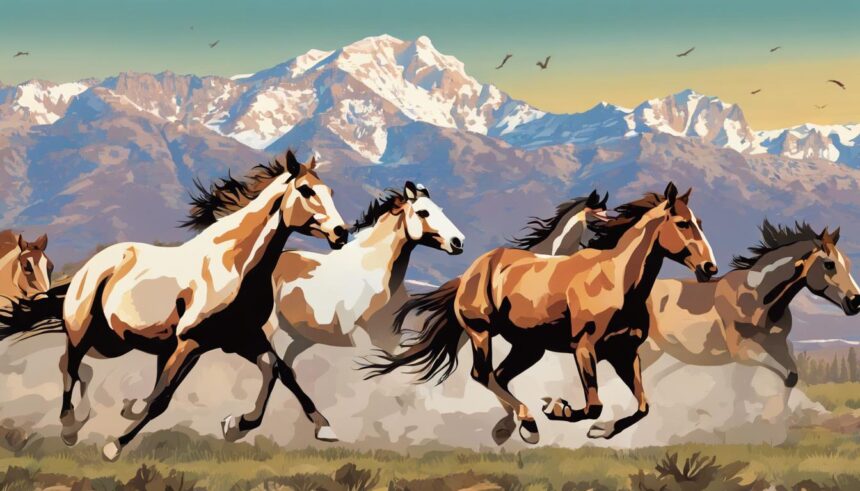Set against the stunning backdrop of the Sierra Nevada Mountains, the Grand Sierra Resort in Reno, Nevada, prepares to welcome conservationists, scientists, and policymakers for a crucial discussion on preserving America’s wild horses and broader wildlife heritage.
In the heart of the American West, the city of Reno, Nevada, is set to host a significant event on the environmental calendar: the Third Annual Saving Our Wild Horses and Wildlife Conference, scheduled for April 17-19, 2024. The Grand Sierra Resort and Casino will offer a scenic venue against the dramatic backdrop of the Sierra Nevada Mountains, providing not just a gathering point but a potent symbol of the natural beauty and diversity the conference seeks to protect.
This event is a rallying call for conservationists, wildlife advocates, scientists, policymakers, and engaged citizens to come together in a united effort to preserve America’s wild horses, burros, and broader wildlife heritage. The narrative of the wild horse, elusive and majestic, has captured the American imagination for centuries, symbolizing freedom and untamed wilderness. Yet, the struggle to maintain this icon of the American spirit against modern challenges has sparked intense debates and requires innovative solutions.
The conference aims to create a fertile ground for discussions, networking, and the exchange of ideas, with an ambitious agenda that highlights several critical areas: Wild Horse Management, Habitat Preservation, Legislative Advocacy, Community Engagement, and Education and Outreach. Each of these topics is integral to understanding the complex web of issues facing wild horses and the ecosystems to which they belong.
Wild Horse Management will address the contentious issues surrounding the governance and sustainable management of wild horse populations, striving to balance their health and welfare with the ecological integrity of the landscapes they inhabit. The management challenges are underpinned by the need for sound scientific research, something that stakeholders hope the conference will spotlight.
Habitat Preservation extends the conversation beyond horses to the broader question of conserving the natural landscapes integral to a myriad of species, including humans. Preservation efforts are not just about saving individual animals but about maintaining the complex ecosystems that support life and provide natural services to society.
Legislative Advocacy recognizes that meaningful change often requires action at the legislative level. Insight into current laws and policies affecting wild horses, alongside strategies for advocacy, will likely resonate with many attendees seeking to influence public policy for the benefit of wildlife conservation.
Community Engagement emphasizes the role of human communities as stewards of the environment, encouraging partnerships between diverse stakeholders. Such collaborations hold the promise of innovative solutions for coexistence between human populations and wildlife.
Lastly, Education and Outreach underline the importance of cultivating a deeper public understanding and appreciation of wild horses and the natural world. By engaging especially the younger generation, the conference aims to inspire future conservationists committed to safeguarding America’s natural heritage.
Organizer Linda Greaves encapsulates the urgency and hope driving the conference, framing it as a “pivotal moment” in the campaign to secure a future for wild horses and their ecosystems. This gathering in Reno represents more than just a meeting of minds; it’s a testament to the ongoing commitment to preserve the rich tapestry of American wildlife for generations to come.
The conference’s call to action resonates beyond its immediate audience, reaching out to all who share a concern for the natural world. It signifies a collective endeavor to shape policies, inform management practices, and ultimately, ensure that the wild horses and the diverse ecosystems they inhabit thrive long into the future.





